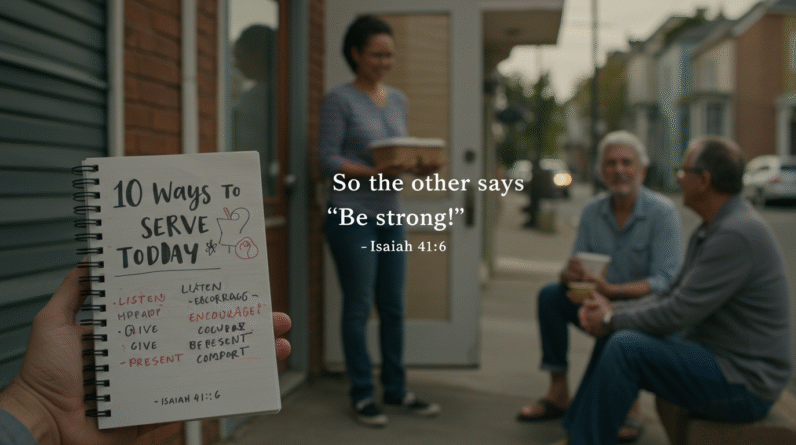Explore Matthew 18:21-22 through a modern lens. This article delves into the boundless nature of forgiveness and its transformative role in our daily lives.
Verses to Live By – Matthew 18:21-22
Introduction
In our fast-paced world, where information comes at us from every direction, it’s easy to feel overwhelmed. Each of us seeks guidance in our way, often turning to the timeless wisdom of the Bible. There, nestled within its pages, are verses that offer clarity, comfort, and insight. These “Verses to Live By” not only light up our paths but also encourage us to extend that light to others. Today, we focus on Matthew 18:21-22, a passage that resonates deeply in themes of forgiveness, patience, and human relationships. Let’s delve into why this particular scripture is one we should consider living by.
Verse Reference
Matthew 18:21-22 (NIV):
“Then Peter came to Jesus and asked, ‘Lord, how many times shall I forgive my brother or sister who sins against me? Up to seven times?’ Jesus answered, ‘I tell you, not seven times, but seventy times.'”
Meaning and Interpretation
In this passage, you find a sincere query from Peter, one of Jesus’ apostles. It shows a moment of raw curiosity about the boundaries of forgiveness. Peter wonders if there is a numerical limit to how often one should forgive someone who has wronged them. Seven times seemed generous by the cultural standards of the time, yet Jesus expands this notion dramatically. His response of “seventy-seven times seven” is not intended to suggest an exact number, but rather to emphasize that forgiveness should be boundless, echoing the limitless nature of God’s forgiveness toward us.
Understanding this verse requires a grasp of the historical and religious context in which it was spoken. At the time, the rabbis taught that you should forgive someone up to three times. Peter, presumably thinking he was being exceptionally magnanimous, suggested more than double that amount. However, Jesus’s answer transcends arithmetic, suggesting that true forgiveness is not quantifiable. It’s a call to embody a forgiving spirit continuously, without keeping score.
Personal Reflection
In the context of modern life, this passage challenges you to think about the role forgiveness plays in your daily interactions. We live in a world that often promotes the idea of holding grudges or seeking revenge as power. However, Matthew 18:21-22 offers a countercultural narrative, one that encourages moving beyond pettiness and embracing a life of grace. It asks you to consider forgiveness not as an isolated act but as a way of life—one that can bring freedom and peace, not only to those who are forgiven but to you as well.
Reflect on how this passage speaks to your own experiences with forgiveness. Have there been times when forgiving someone seemed impossible, but once achieved, it lifted a significant weight off your shoulders? Or perhaps it’s encouraged you to seek forgiveness from others, realizing it’s a mutual exchange that enhances relationships rather than diminishes them.

Life Application
Implementing the teachings of Matthew 18:21-22 in your everyday life might feel daunting at first, but it’s about practicing mindfulness and patience. Here are a few practical ways to apply these lessons:
- Let Go of Past Hurts: Begin with small steps by forgiving minor grievances. It could be the relative who made an insensitive comment or a coworker who neglected to include you in an email. Start small, and over time, you’ll find your ability to forgive grows.
- Practice Empathy: Try to understand the person who has wronged you. Step into their shoes and consider their perspective. This doesn’t justify their behavior, but empathy can open the door to compassion.
- Set Boundaries: Forgiveness doesn’t mean you have to endure toxic behavior. Learn to set healthy boundaries while still maintaining a forgiving spirit. Your peace matters, and it’s possible to forgive and protect yourself simultaneously.
- Remind Yourself of Forgiveness’s Power: Keep Matthew 18:21-22 in mind when you’re faced with conflict. It can be a powerful reminder of why forgiveness is important and can guide you toward peaceful resolutions.
Closing Thought
Matthew 18:21-22 isn’t just an ancient injunction; it’s a living principle that invites you to transform your interactions with others, creating a ripple effect of peace and reconciliation in your life. By forgiving as you wish to be forgiven, you embody a more profound connection to humanity and to the divine. As you let this passage resonate within you, consider how it might shape your everyday relations and the person you aspire to become.
Carry this verse with you, and let it be a lens through which you view the world—a world where forgiveness transcends the limits we often impose on it. It’s not merely about obligation but about liberation—the kind that allows you to live a life unburdened by past wrongs. Let it inspire your actions and bridge the gaps that separation has created.
As a ClickBank Affiliate, I earn from qualifying purchases.
Acknowledgment: All Bible verses referenced in this article were accessed via Bible Gateway (or Bible Hub).
“Want to explore more? Check out our latest post on Why Jesus? and discover the life-changing truth of the Gospel!”








